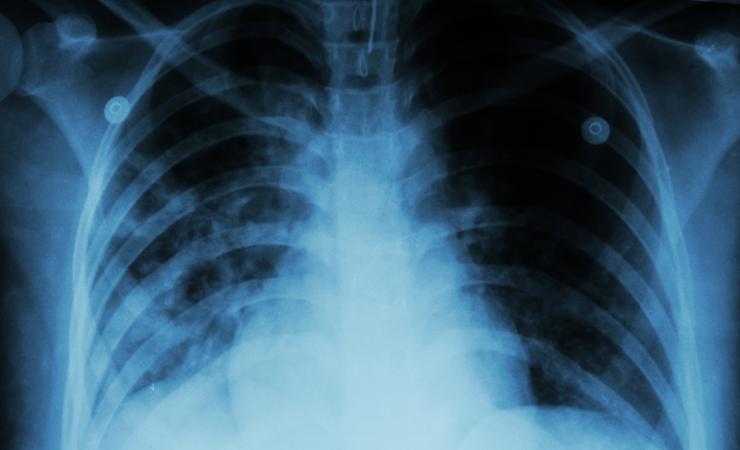A total of 1.6 million people died from tuberculosis (TB) in 2021. Worldwide, it is the 13th leading cause of death and the second leading infectious killer after COVID-19. Over 80% of cases and deaths are in low- and middle-income countries.
Molecular tools for diagnosing TB can help determine the best course of treatment for people with severe or drug-resistant forms of the disease, but it’s not so easy for low- and middle-income countries to carry out these tests.
The Young Investigators Group of the Innovative Medicines Initiative (IMI) UNITE4TB project has written a paper detailing the obstacles that arise in limited-resource and high-burden countries when attempting to roll out molecular diagnostic tests to determine which course of treatment people who have TB should take. The paper is published in the journal Breathe.
The majority of people with TB will have a form of the disease that can be treated within 6 to 9 months using a series of well-known drugs. Others will have developed a very dangerous mutant strain of TB that is resistant to those drugs. If a person has drug-resistant TB, then they will have to endure a longer treatment path than average – one that is a lot harsher.
“The longer regimen is really painful for the patients because we are talking about a regimen that lasts for longer than one year. Until a few years ago, treatment included injectables with very serious and permanent side effects,” says Prof. Daniela Cirillo, UNITE4TB consortium member and Head of the Emerging Bacterial Pathogen Research unit at the San Raffaele Scientific Institute in Milan, Italy. She says this is a lesson on how damaging the impacts of drug resistance can be. “Avoiding the development of drug resistance for any new drugs that come on the market is a priority for all of us.”
The problem is that limited-resource and high-burden countries, which bear the bulk of TB cases, can’t deploy molecular techniques like next generation sequencing and whole genome sequencing as easily as western countries.
“The sequencing of one strain can cost €100 in my lab, but it could cost €350 in low- and middle-income countries.”, says Prof. Cirillo.
The reasons for this are complex. Transport of reagents requires special conditions (like dry ice); transportation facilities are not readily available; equipment needs to be maintained on a regular basis; and duty taxes are imposed by certain countries. All of these factors drive up the price.
One solution is to create centralised “hubs” that could perform sequences in each country and then send the results back to the owners, but this again relies on having suitable transportation facilities and infrastructure.
“Countries need to work on sample transport more and not only on point of care,” says Prof. Cirillo.
Boosting training in bioinformatics is another way that the system could be improved, and data analysis should be available in real-time, simplified, and easy to interpret.
Dr Anca Vasiliu, a postdoctoral associate at the Baylor College of Medicine Global TB Programme in Uganda, says that the group hopes that their work will have real-world impact. She and Dr Antonia Morita Istwari Saktiawati of the Universitas Gadjah Mada in Indonesia are joint first authors on the paper.
“We hope that people who want to implement these strategies in their countries would read this paper, would get information on possible solutions to adapt to their context,” says Dr Vasiliu. The paper mentions some case studies, like an example in the Kyrgyz Republic where whole genome sequencing was effectively established.
She says that one of the key advantages of working on this paper and being part of the Young Investigators Group is the global context. “I am so happy to be able to collaborate with people from all over the world. We can find common solutions and we can work towards developing these together.”
The Young Investigator Group Coordinator Prof. Raquel Duarte, a pulmonologist and professor of epidemiology and public health at ICBAS - University of Porto, Portugal, says that several pieces of the puzzle are still missing if we want to eliminate TB.
“We need better diagnostic tests and shorter treatment regimens. We need a better way to identify the people that we can predict to have a higher risk of developing tuberculosis in the future. We need better preventive treatment, and we need a vaccine,” she says. “We are on the way to controlling it better, but we still need some pieces and to work together to reach elimination.”
The paper is one in a series of four that will be published this year, based on webinars organised by UNITE4TB. The next webinar, which will discuss the applications of artificial intelligence/machine learning to integrate tb clinical and molecular data, will take place on 30 March.
UNITE4TB is a seven year project that brings together academic institutions, small- and medium-sized enterprises (SMEs), public organizations, and pharmaceutical companies. Over the course of the project, the consortium will be active in approximately 40 trial sites on four continents (Europe, Asia, Africa and South America), with the goal of delivering novel phase 2 clinical trials that will accelerate the development of new TB drugs and regimens. Achieving this goal will facilitate the fulfillment of one of the main unmet needs in the TB field: better-tolerated drug regimens of shorter duration that can be deployed to tackle tuberculosis across various drug-resistance patterns and co-morbidities.
UNITE4TB is supported by the Innovative Medicines Initiative, a partnership between the European Union and the European pharmaceutical industry. It is part of the IMI Antimicrobial Resistance (AMR) Accelerator Programme.
